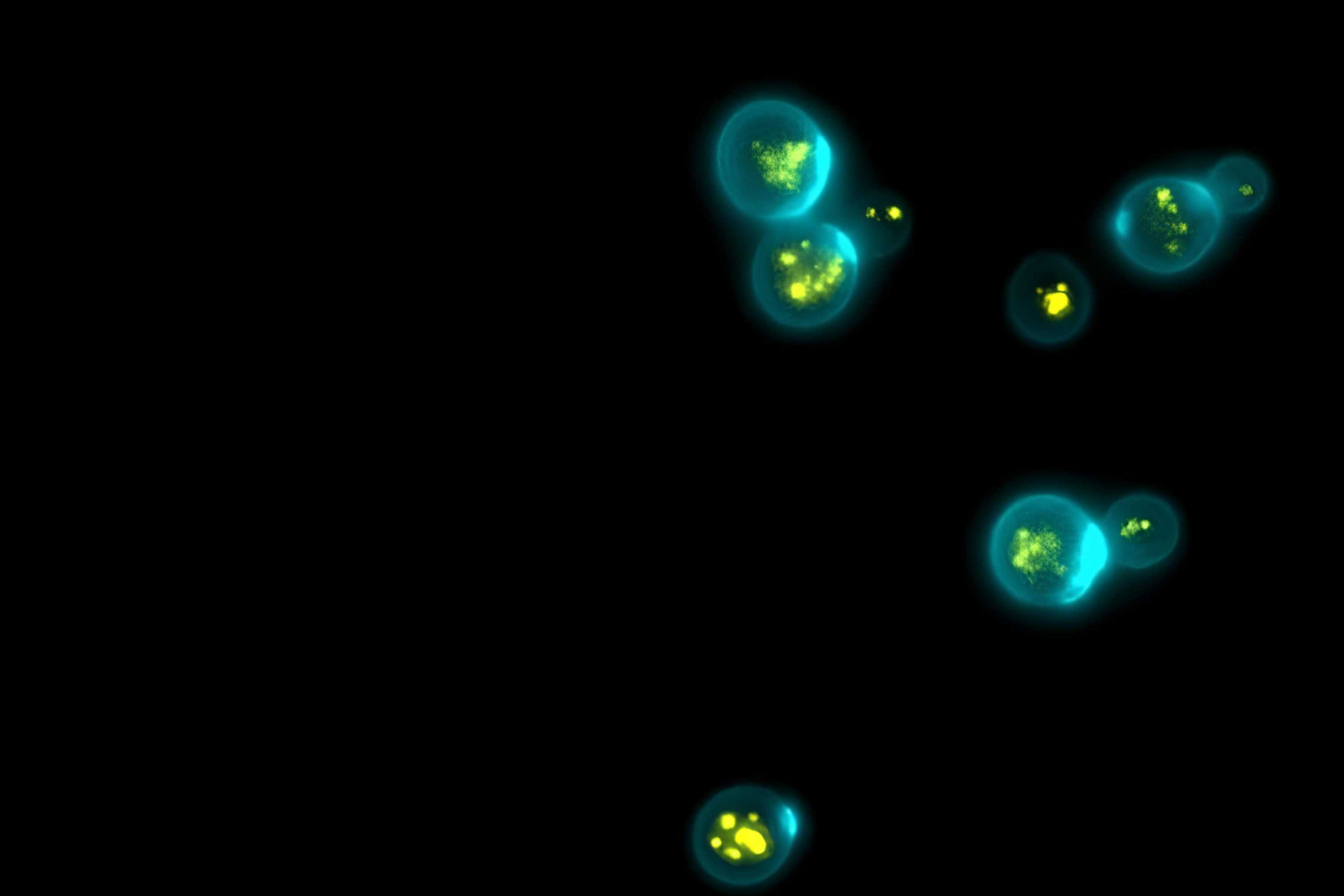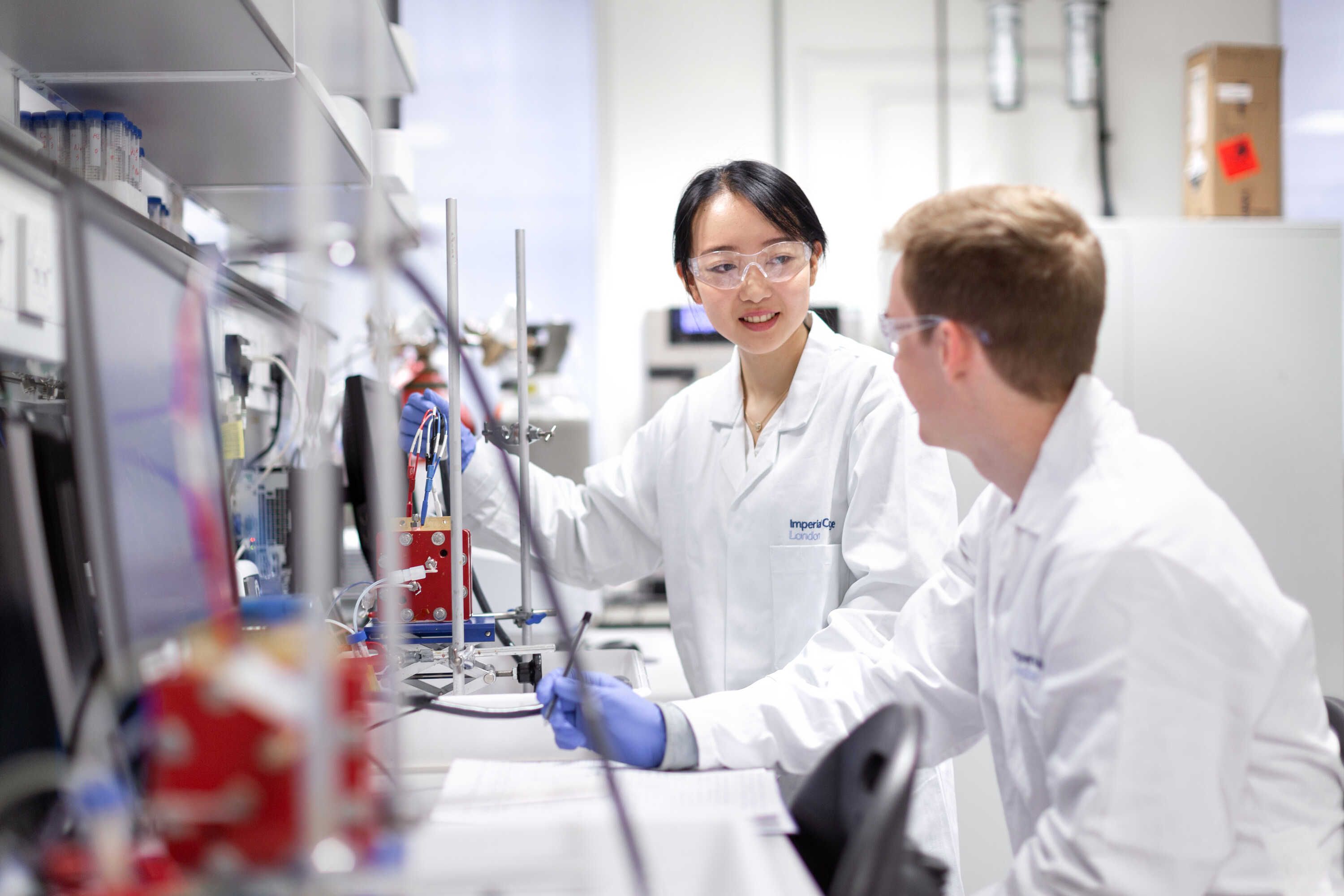
Molecular Engineering
Develop the cross-disciplinary expertise to work on exciting challenges at the interface of science and engineering.
Develop the cross-disciplinary knowledge to work on exciting challenges at the interface of science and engineering
Build your modelling and simulation skills to assess the relationship between experiments, models and the design of molecular systems
Gain real-world experience through a six-month hands-on project in collaboration with an industrial partner
Course key facts
Qualification
MRes
Duration
1 year
Start date
September 2025
Study mode
Full-time
-
Fees
£18,000 Home
£42,500 Overseas
Delivered by
Location
-
South Kensington
-
Course overview
This programme has now been suspended and will not be delivered in 2025-26.
The challenges facing today’s world need STEM graduates able to work in multidisciplinary teams, at the interface of science and engineering.
Challenges such as climate change, developing green energy technologies, improving health and wellbeing, addressing plastic pollution, and making better medicines.
You will receive truly cross-disciplinary training – taught by world-leading researchers from multiple departments, through interactive, small-group classes.
You'll learn to combine skills in chemistry, physics, and materials science with chemical engineering principles to tackle global challenges.
Through taught modules and coursework exercises, you will study how to design, synthesise, measure, model and manufacture molecules, materials and devices – from the molecular to the systems scale.
You will apply these new skills to a real-world problem during your six-month cross-disciplinary research project, in close collaboration with industry (or a healthcare provider or charity).
Structure
This page is updated regularly to reflect the latest version of the curriculum. However, this information is subject to change.
Find out more about potential course changes.
Please note: it may not always be possible to take specific combinations of modules due to timetabling conflicts. For confirmation, please check with the relevant department.
You’ll take all of these core modules.
Core modules
Learn about the fundamental principles of molecular science and why molecules behave as they do. You’ll also explore the differences between traditional engineering and molecular science.
Discover how to analyse and assess systems and processes, including the business perspective.
Learn how to design molecules for specific purposes.
Develop the skills to simulate molecules and matter at the quantum, molecular, macroscopic, and continuum length scales.
Study modern, sustainable methods for making polymers with particular properties, including catalysis for synthesis, solvents for polymer processing, bio-based methods, and microfluidic approaches.
Build your knowledge of the wide range of characterisation techniques available to modern molecular scientists and engineers.
Explore the scientific and design principles to address current challenges in manufacturing molecules and materials.
Teaching and assessment
Teaching and learning methods
-
Traditional and flipped lectures
-
Tutorials
-
Workshops and case studies
-
Computational exercises
-
Lab work
-
Individual project work
-
Seminars
-
Virtual learning environment
-
Cohort learning
Balance of assessment
Key
- Coursework
- Practical
- Exams
- 64% Coursework
- 23% Practical
- 13% Exams
Assessment methods
-
Independent project work
-
Problem sheets
-
Oral presentations
-
Poster presentations
-
Lab reports
-
Literature reviews
-
Written reports
-
Written examinations
Entry requirements
We consider all applicants on an individual basis, welcoming students from all over the world.
2:1 in Engineering or Physical Sciences.
How to apply
This programme has now been suspended and will not be delivered in 2025-26.
There is no application fee for MRes courses, Postgraduate Certificates, Postgraduate Diplomas, or courses such as PhDs and EngDs.
If you are applying for a taught Master’s course, you will need to pay an application fee before submitting your application.
The fee applies per application and not per course.
- £80 for all taught Master's applications, excluding those to the Imperial College Business School.
- £100 for all MSc applications to the Imperial College Business School.
- £150 for all MBA applications to the Imperial College Business School.
If you are facing financial hardship and are unable to pay the application fee, we encourage you to apply for our application fee waiver.
We operate a staged admissions process with several application rounds throughout the year.
Apply by 23.59 (UK time) on the closing date of an application round, to ensure you receive a response on your application by the relevant decision date.
Application rounds
Round 1
- Applications open on Friday 27 September 2024
- Applications close on Thursday 16 January 2025
- Decision by Thursday 6 March 2025
Round 2
- Applications open on Friday 17 January 2025
- Applications close on Thursday 27 March 2025
- Decision by Thursday 1 May 2025
Round 3
- Applications open on Friday 28 March 2025
- Applications close on Thursday 15 May 2025
- Decision by Thursday 17 July 2025
Find out more about how to apply for a Master's course, including references and personal statements.
The focus of this course is the interaction between molecular science and engineering.
As such, applicants are expected to have a degree in an engineering subject (e.g. Chemical Engineering, Bioengineering, Civil Engineering, Mechanical Engineering) or physical science degree (e.g. Chemistry, Physics, Materials Science) or life sciences degree with a good competency in mathematics.
Maths covered during an undergraduate degree in physical science or engineering would normally be sufficient.
If you have any questions, please contact: imse.mres@imperial.ac.uk
Unless you are from an exempt nationality, you will need an ATAS certificate to obtain your visa and study this course.
Nationals from the following countries are exempt: Switzerland, Australia, Canada, Japan, New Zealand, Singapore, South Korea, USA and EEA members.
Use this information when applying for an ATAS certificate to study this course:
- CAH code: CAH10-01-09
- Descriptor: chemical, process and energy engineering
- Supervisor name: Professor Omar Matar
Get guidance and support for obtaining an ATAS certificate.
Fees and funding
Home fee
2025 entry
£18,000
You should expect and budget for your fees to increase each year.
Your fee is based on the year you enter the university, not your year of study. This means that if you repeat a year or resume your studies after an interruption, your fees will only increase by the amount linked to inflation.
Find out more about our , including how inflationary increases are applied to your tuition fees in subsequent years of study.
Whether you pay the Home or Overseas fee depends on your fee status. This is assessed based on UK Government legislation and includes things like where you live and your nationality or residency status. Find out .
If you're a UK national, or EU national with settled or pre-settled status under the EU Settlement Scheme, you may be able to apply for a from the UK government, if you meet certain criteria.
For courses starting on or after 1 August 2024, the maximum amount is £12,471. The loan is not means-tested and you can choose whether to put it towards your tuition fees or living costs.
The loan is not means-tested and you can choose whether to put it towards your tuition fees or living costs.
Scholarships
Molecular Science and Engineering Masters Scholarship
Value per award
- £10,000 towards tuition fees
Who it's for
- Offer-holders from under-represented groups, typically with First Class Hons or equivalent in their undergraduate degree
Dr Theo George Wilson Scholarship
Value per award
- £10,000 towards tuition fees
Who it's for
- Offer-holders from under-represented groups, typically with First Class Hons or equivalent in their undergraduate degree
How will studying at Imperial help my career?
Gain analytical and research skills to work in multiple disciplines.
Potential career paths include research in industry or academia, or working in consultancy, policy and regulation, finance, or teaching.
With cross-disciplinary knowledge and industrial experience, you'll be highly sough after in a range of sectors.
These include biotech, pharma, the chemical industry, home and personal care, food, etc, and range from small start-ups to large multinational companies.
Testimonials
Further links
Contact the department
- Email: imse.mres@imperial.ac.uk
Course Co-directors: Dr Ali Salehi-Reyhani and Dr Anna Hankin
View the Institute for Molecular Science and Engineering website.

Request info
Find out more about studying at Imperial. Receive updates about life in our community, including event invites and download our latest Study guide.

Events, tasters and talks
Meet us and find out more about studying at Imperial.

Terms and conditions
There are some important pieces of information you should be aware of when applying to Imperial. These include key information about your tuition fees, funding, visas, accommodation and more.
You can find further information about your course, including degree classifications, regulations, progression and awards in the programme specification for your course.
Programme specifications